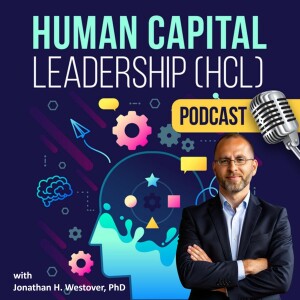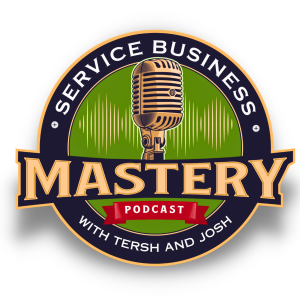

“If you’re going to have people come to a live event, then let’s celebrate their being alive. And asking them to sit silently, passively in the dark for hours at an end is not celebrating their being alive.” — Charlie Melcher
Listen:
http://convenesite.wpengine.com/wp-content/uploads/2017/02/ConveneEp9.mp3Intro music composed by David McMillin
Charlie Melcher began his career in book publishing, but his company, Melcher Media, is anything but traditional — in addition to books, it releases apps, short films, and other digital media. And when Melcher created a conference — the Future of StoryTelling Summit — to bring digital storytellers together in New York City, Melcher kept on reinventing.
““The first issue was how do you create a 21st-century conference,” Melcher told Convene podcast host Ashley Milne-Tyte. “How are you able to walk your talk with the event, if the idea is to look at how digital media and technology is transforming the way we communicate?”
We described some of Melcher's innovations in our January cover story In this conversation, Melcher and Milne-Tyte keep digging into the process.
Read the full transcript below:
Ashley Milne-Tyte: Welcome to the Convene Podcast, I’m your host, Ashley Milne-Tyte. In this podcast we’re talking to Charlie Melcher. He’s the founder of the Future of Storytelling – a summit that wants to upend the way we think about storytelling, and the way we think about conferences.
Charlie Melcher: If you’re going to have people come to a live event, then let’s celebrate their being alive. And asking them to sit silently, passively in the dark for hours at an end is not celebrating their being alive.
AM-T: Coming up, where storytelling and conferences meet. Convene Magazine is published by PCMA, the Professional Convention Management Association, and it offers fresh perspectives on meetings and events. You can find Convene online at pcmaconvene.org.
Charlie Melcher is CEO of Melcher Media. It’s a publishing company in New York, but not in the way you might think. They publish books, yes, but also apps, short films, digital media of all kinds. A few years ago he realized, there’s this whole community of people like us out there who are telling stories in a new way – they might be musicians, gamers, advertisers – but they all have the same goal: to tell the best stories in the most innovative ways. He decided they all needed a way to get together, to inspire eachother and learn from eachother. That’s how the Future of Storytelling – or FoST – was born.
CM: The first issue was how do you create a 21st century conference…how are you able to walk your talk with the event, if the idea is to look at how digital media and technology is transforming the way we communicate. The first insight was we didn’t want to make it a passive experience, we didn’t want to create a conference where everyone sat in the dark in an auditorium and was lectured by someone from a stage.
AM-T: Instead, Charlie and his team decided to make short films of their speakers before the conference – films where they discuss their ideas and their work.
CM: Share those online before the event, so our attendees could watch them, get excited, choose their favorite speakers and then when they came to FoST they could sit in a comfortable room around a table with their favorite speaker and 25 other people who had self-selected to be in that session. And then they have this very sort of lean in, roll up your sleeves hour to have a high level seminar with this world expert and 25 other really interesting people around the room.
AM-T: When Barbara Palmer, the senior editor of Convene, when she did a print piece about your conference, you were quoted as saying you knew you needed to blow up the conference model. Is that what you meant by that?
CM: Yeah, that and other things. We were looking at ways to get people to learn by doing, to get people to connect with each other in new ways. A lot of what we were trying to do was take our attendees and shake them up in different groups. So that we’re without people realizing it we’re forcing them to get to know each other, to meet new people.
AM-T: For those of you who listened to the last podcast with Josh Packard, this may sound familiar. He argued that to keep future conference goers engaged, organizers will have to allow more interaction with the speakers and other guests at the event itself – and let attendees watch the speakers’ talks ahead of time.
CM: That’s exactly what we do and that came from the understanding we should allow each medium to do what it does best. So video works beautifully online, the internet is a perfect place to convey certain kinds of information, but if you’re going to have people come to a live event, then let’s celebrate their being alive. And asking them to sit silently, passively in the dark for hours at an end is not celebrating their being alive. It’s not actually encouraging conversation, connections, or participation, and it’s not solved by taking three questions at the end.
AM-T: He says these days people expect to be able to participate, to ‘like’, share, and comment.
CM: But even more than that now we want to be part of the discussion, or we want a role to play at the very least. And so we built FoST around that and we all know you learn better, you make friends more quickly, you are stimulated if you are physically active.
AM-T: He says little of the Future of Storytelling is passive – they do have performances, but pretty much everything else has attendees taking part in some way: they have workshops, for example…
CM: So we have someone teaching aerial drone photography and we have 20 people outside flying drones.
AM-T: And you know those performances I mentioned? Well it turns out even those can get interactive pretty quickly.
CM: The last thing is we actually make a meta narrative…
AM-T: I read about this and it sounded terrifying to me…can you explain a little bit to people who don’t know, how does that work?
CM: So we work with a writer and a troupe of actors and we create a story that will play through the 2 days of the summit, and our intention, since we’re here talking about storytelling in a meta sense, we want you to also be able to experience it. So you’re at a thought leadership gathering talking about storytelling, and you’re in ...
More Episodes
All Episodes>>You may also like
Create Your Podcast In Minutes
- Full-featured podcast site
- Unlimited storage and bandwidth
- Comprehensive podcast stats
- Distribute to Apple Podcasts, Spotify, and more
- Make money with your podcast












